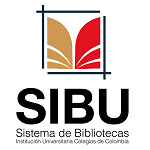Introduction to Psychology
por Stangor, Charles .
.
Editor: Irvington : Flat World Knowledge , 2010Edición: 1 Ed.Descripción: 479 pp.ISBN: 9781936126484.Tema(s): Psicología| Tipo de ítem | Ubicación | Colección | Signatura topográfica | Estado | Fecha de vencimiento | Código de barras | Reserva de ejemplares |
|---|---|---|---|---|---|---|---|
 Libro electrónico Libro electrónico |
Bogotá (Dr. David Ordóñez Rueda) - Campus Norte
Campus Norte Biblioteca de la Institución Universitaria Colegios de Colombia |
Coleccion Online | 150.1 (Navegar estantería) | No para préstamo | Ebook10503 |
Navegando Bogotá (Dr. David Ordóñez Rueda) - Campus Norte Estantes Cerrar el navegador de estanterías
Capítulo 1. Introducing Psychology : Psychology as a Science. -- The Evolution of Psychology: History, Approaches, and Questions. -- Capítulo 2. Psychological Science : Psychologists Use the Scientific Method to Guide Their Research. -- Psychologists Use Descriptive, Correlational, and Experimental Research Designs to Understand Behavior. -- You Can Be an Informed Consumer of Psychological Research. -- Capítulo 3. Brains, Bodies, and Behavior : The Neuron Is the Building Block of the Nervous System. -- Our Brains Control Our Thoughts, Feelings, and Behavior. -- Psychologists Study the Brain Using Many Different Methods. -- Putting It All Together: The Nervous System and the Endocrine System Psychology as a Science. -- Capítulo 4. Sensing and Perceiving : We Experience Our World Through Sensation. -- Seeing. -- Hearing. -- Tasting, Smelling, and Touching. -- Accuracy and Inaccuracy in Perception. -- Capítulo 5. States of Consciousness : Sleeping and Dreaming Revitalize Us for Action. -- Altering Consciousness With Psychoactive Drugs. -- Altering Consciousness Without Drugs. -- Capítulo 6. Growing and Developing : Conception and Prenatal Development. -- Infancy and Childhood: Exploring and Learning. -- Adolescence: Developing Independence and Identity. -- Early and Middle Adulthood: Building Effective Lives. -- Late Adulthood: Aging, Retiring, and Bereavement. -- Capítulo 7. Learning : Learning by Association: Classical Conditioning. -- Changing Behavior Through Reinforcement and Punishment: Operant Conditioning. -- Learning by Insight and Observation. -- Using the Principles of Learning to Understand Everyday Behavior. -- Capítulo 8. Remembering and Judging : Memories as Types and Stages. -- How We Remember: Cues to Improving Memory. -- Accuracy and Inaccuracy in Memory and Cognition. -- Intelligence and Language. -- Defining and Measuring Intelligence. -- The Social, Cultural, and Political Aspects of Intelligence. -- Communicating With Others: The Development and Use of Language. -- Capítulo 10. Emotions and Motivations : The Experience of Emotion. -- Stress: The Unseen Killer. -- Positive Emotions: The Power of Happiness. -- Two Fundamental Human Motivations: Eating and Mating. -- Capítulo 11. Personality : Personality and Behavior: Approaches and Measurement. -- The Origins of Personality. -- Is Personality More Nature or More Nurture? Behavioral and Molecular Genetics. -- Capítulo 12. Defining Psychological Disorders : Psychological Disorder: What Makes a Behavior “Abnormal”?. -- Anxiety and Dissociative Disorders: Fearing the World Around Us. -- Mood Disorders: Emotions as Illness. -- Schizophrenia: The Edge of Reality and Consciousness. -- Personality Disorders. -- Somatoform, Factitious, and Sexual Disorders. -- Capítulo 13. Treating Psychological Disorders : Reducing Disorder by Confronting It: Psychotherapy. -- Reducing Disorder Biologically: Drug and Brain Therapy. -- Reducing Disorder by Changing the Social Situation. -- Evaluating Treatment and Prevention: What Works?. -- Capítulo 14. Psychology in Our Social Lives : Social Cognition: Making Sense of Ourselves and Others. -- Interacting With Others: Helping, Hurting, and Conforming. -- Working With Others: The Costs and Benefits of Social Groups.
Unicoc
Inglés
© 2014 UNICOC | Institución Universitaria Colegios de Colombia - UNICOC
Bogotá D.C. Autopista Norte Km. 20. Teléfono:(571)6683535
Cali: Calle 13 Norte No. 3N-13. Teléfono: (572)6608887





